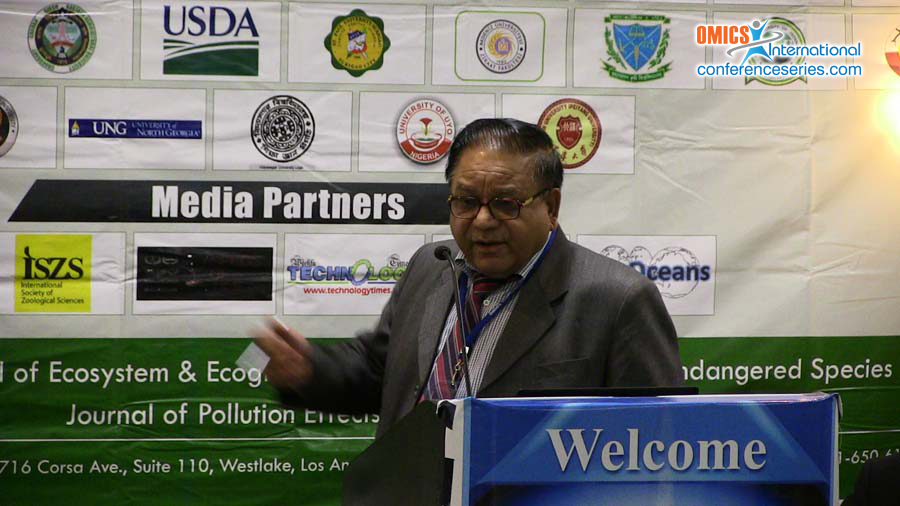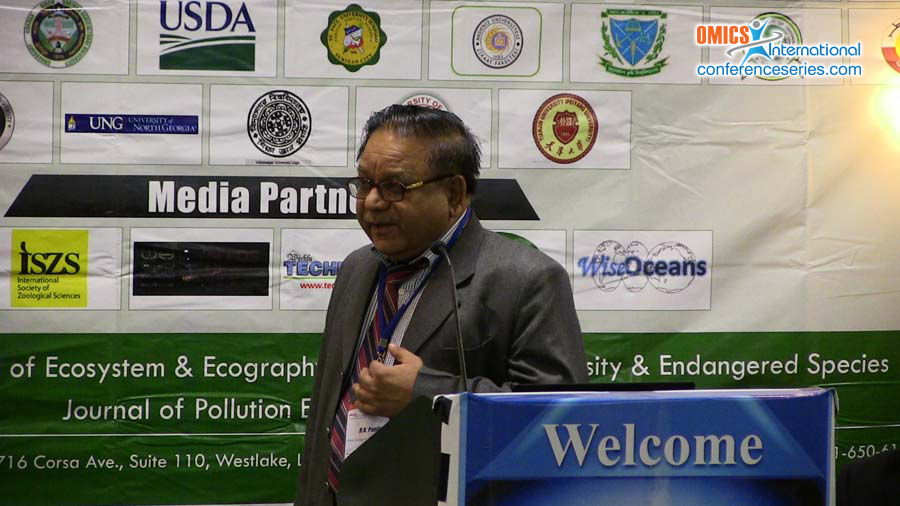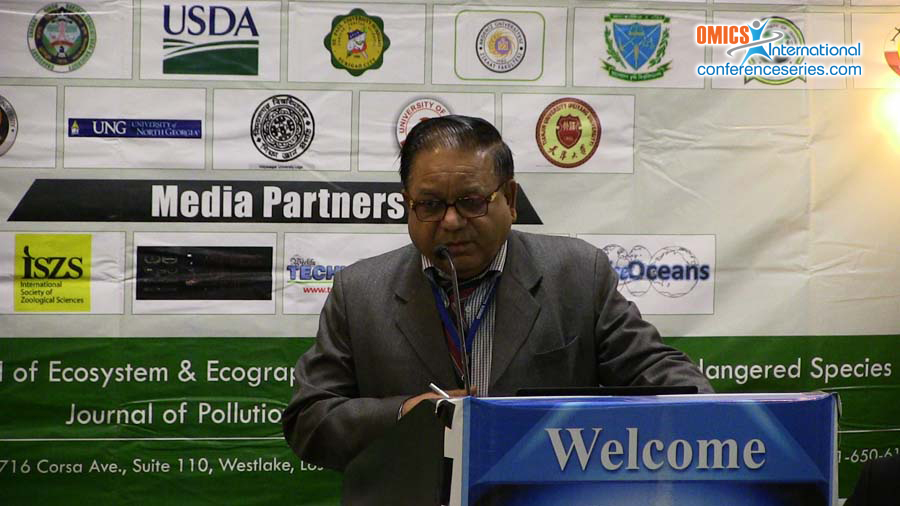
R. K. Pandey
Forest Ecology & Environment Division, India
Title: Community oriented integrated ecosystem approach for conservation and sustainable management of forest genetic resources: Challenges in biodiversity conservation in natural tropical forests of India
Biography
Biography: R. K. Pandey
Abstract
Conservation and sustainable management of forest genetic resources, particularly commercially important NTFPs are challenging tasks in government owned tropical forests of India. Gradual deterioration and reduction of forest area, increasing demand coupled with invasion of alien species are the major factors, have imposed threat on survival of most of the indigenous wild genetic resources in-situ. NTFP species subjected to over exploitation are either disappeared or on the verge of extinction in almost all potentially rich tropical forests of India. In the prevailing conditions, natural forests has been a major concern of managers, policy makers and forest dependent people at large, being direct impact on conservation, ecological perpetuation, and socio-economic security of the region.
India is one of the 12 mega diversity regions having vast variety of fl ora and fauna. Wide ranges of physical features and climatic conditions have resulted into diverse ecological habitats in the form of various forest types. Forestry is the second largest land use aft er agriculture and almost all the forest areas are owned by State governments. Th ese forests harbor about seven per cent of world’s fl ora comprising of 328 families with 21,000 representative plant species. India has a recorded forest area of 76.84 m ha, which is 23 % of the total geographical area of the country (FSI, 2003). About 300 million people belonging to rural poor and tribal communities depend on forest resources particularly, non timber forest produces (NTFPs) for their livelihood. A large population of the country’s livestock (about 18 % of the world) depends upon forests for grazing, which is one of the important factors for serious damage to forest regeneration, growth and production of natural tropical forests.
National forest Policy (NFP) 1988 of India, defi nes the primary goals of forest management, as fi rst to conserve the natural environment, second to meet the requirement of local people (tribal and rural poor population) from the forest produces and the third as a source of wood and other products for industries and other non-local uses (FSI and FAO, 2004). JFM system has been constituted, aiming to “the sharing of responsibilities for protection, produces and decision making with local communities over forest lands between forest department (owner stakeholder)” through judicious use of limited resources on sustainable manner. Nearly, all states of Indian Union have passed the JFM resolution (1990), and more than 65,000 joint forest management committees (JFMCs) have been constituted (FSI, 2003).
It is now widely accepted that the rural people living in and around forests are the key stakeholder for in-situ conservation and sustainable management of regional biodiversity of tropical forest of India in the forest management process. Severity of problems of in-situ conservation and non sustainable collection of forest genetic resources are the challenging task for sustainable management of forest resources and livelihood security of forest dependent people. Community oriented integrated ecosystem approach for sustainable harvesting of utilizable forest resources have been initiated by the State Forest Research Institute, Jabalpur, (M.P.) India through several case studies in natural tropical forests. Th e paper embodied a comprehensive model of develop technology for sustainable harvesting and management of indigenous forest genetic resources through strategic community oriented skill and capacity building programmes with strict institutional management interventions. Developed technologies as an eff ective tool for conservation and sustainable management of regional biodiversity in natural tropical forests are discussed in this paper.
Speaker Presentations
Speaker PDFs
Speaker PPTs Click Here



